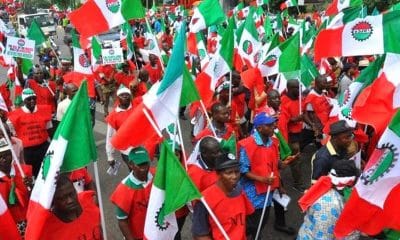Business
‘Allow Us To Increase Our Tariff Plan Prices’ – MTN, Others Beg FG

MTN Nigeria and other multinational business leaders have urged the Federal Government to establish a fair, competitive environment that would allow businesses to maintain their investments within the nation.
The business operators lament that the government has not allowed them to increase their prices in the last ten years, stating that such policy must be reviewed if they must stay in business.
Naija News reports that this remark was articulated by Modupe Kadri, the Chief Financial Officer of MTN, who pointed out that the prevailing high inflation rates and fluctuations in foreign exchange have hindered the telecommunications sector’s ability to function efficiently.
Kadri highlighted the challenges faced by the firm during a panel discussion at the 30th Nigerian Economic Summit held on Tuesday in Abuja, which was themed ‘Navigating Business Growth in a Volatile Environment.’
The CFO emphasized that the current economic conditions have led to increased tariffs in the petroleum and electricity sectors, questioning why similar adjustments have not been authorized for the telecommunications sector.
He underscored that telecom operators have not been granted regulatory permission to modify their pricing for over ten years despite the fact that they import telecommunications equipment at foreign currency rates.
Kadri said, “For ten years now, telecommunication companies haven’t been permitted to increase prices, and this regulation is not providing us with a level playing field to operate. If we are to stay in business, this policy must be reviewed, similar to how electricity and fuel prices are adjusted to reflect current economic realities.
“Our business is mainly dependent on foreign exchange, so customers need to understand that for them to receive the services they desire, it costs money.
“When people have to invest in the country and are unable to monetise their investments, it cannot work.
“The only way this economy will thrive is if there is appropriate pricing such that investments in the sector are guaranteed. The government is talking about diversifying; I’m talking about survival. What is the business case for me to invest when I’m bleeding almost to death?
“The telecommunications industry contributes 16 per cent to the GDP, and it is not something that you can mess around with.
He stated that for the government to encourage the survival of businesses, there had to be a level playing field.
“If we are not careful, what happened to the oil industry, which led to a loss of investments, will happen to telecommunications, and the industry will come to a halt. It’s not rocket science.”
He also emphasized that any decline in the telecommunications sector would likely have a cascading impact on industries such as financial services, logistics, and the overall economy.
In addition, Oyeyimka Adeboye, the Chief Executive Officer of Mondelez West Africa (Cadbury), indicated that the company’s production relies significantly on imports.
Adeboye pointed out that the expenses associated with conducting business in the country have increased threefold over the past two years.
She underscored the importance of reducing imports and enhancing access to financing for domestic production.
“We import glucose, but we have people who can produce it here locally. The problem is that they do not have access to finance,” she said.
In his remark, the Chief Financial Officer of APM Terminals West Africa, Courage Obadagbonyi, emphasized the necessity for improved collaboration among government regulators.
He noted that the absence of such coordination has led to confusion for businesses, asserting that investments cannot flourish in a disordered environment.
Nkechi Obi, the Group Managing Director of Techno Oil Limited, conveyed that successful business operations are contingent upon sound policies. She expressed hope that the inauguration of the Dangote refinery would contribute to a degree of stabilization in the prices of petroleum products.
“Techno Oil is working on its refinery to avoid shocks or uncertainties in the sector,” she said.












